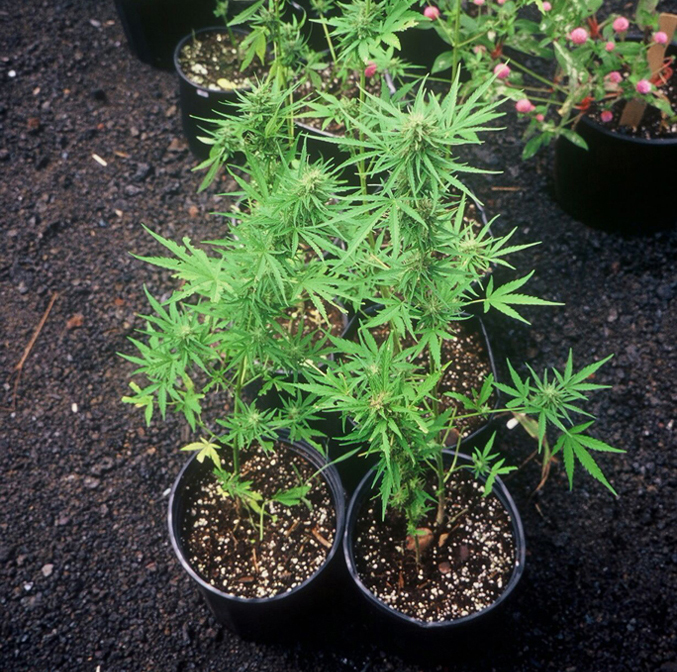Cannabis Cultivation. Photo by Chris Kilham
Like many other Americans, when lawyer Keith Stroup comes home after a long day at work, he likes to unwind by pouring a glass of wine, sitting on the couch and enjoying the news. But first he’ll roll a joint.
“If I’m home, not traveling, I smoke generally every evening. ... That’s just my routine. It has been for many years,” the 70-year-old Washington, D.C., native told The Huffington Post.
Stroup, who founded the National Organization for the Reform of Marijuana Laws in 1970, first tried marijuana nearly 50 years ago during his freshman year at Georgetown University Law Center and has been smoking ever since. And he’s not alone.
The most recent data from the Substance Abuse and Mental Health Services Administration show that marijuana use has increased among individuals over the age of 50 in the past decade. In 2012, 8 percent of those aged 50-54 said they’d used marijuana in the past year, nearly double the percentage from 2002. Users aged 55-59 more than quadrupled, from 1.6 percent in 2002 to 7.4 percent in 2012. Among people 60-64, use nearly doubled, from 2.4 percent to 4.4 percent in the same period. The data were collected for the agency’s annual National Survey on Drug Use and Health, which polled more than 68,000 Americans over age 12 in 2012.
So why are older generations increasingly lighting up and getting high? Older pot smokers offer a few different explanations.
No longer juggling a career with raising children, mature Americans may find themselves with more free time (and disposable income) to enjoy the vice of their youth.
Zoe Helene, a Huffington Post blogger who turns 50 later this year, started using marijuana in her 20s and then mostly stopped during the 1990s, finding herself with a high-powered career plus a partner who was strictly against it. She said she has seen similar patterns with her peers.
Her friend, Susan, a 62-year-old landscape architect, first tried marijuana in high school but didn't start smoking it regularly until her early 50s. Susan, who asked to have her last name withheld, said she started using marijuana again as her kids moved out of the house, her business became more established and she wasn’t as worried about being “lucid” all the time.
“When you’re child rearing, you can’t say one thing and do another,” Susan said. “You have to set an example for your kids. Once your kids are gone, you’re much more free to explore.”
Another lure of marijuana for older individuals is its ability to relieve pain. In states where medical marijuana is legal, cannabis is prescribed for chemotherapy-induced nausea or for nerve pain and other chronic conditions. Chemicals found in marijuana have an analgesic effect on the brain, and some studies have shown it can even help with rheumatoid arthritis.
Susan experienced the pain-relieving properties of the substance last year when she developed shingles. “It was really painful, and Chris [Helene’s husband] brought me some edibles, and it was amazing how it helped with the pain,” she said, adding that she could see herself using marijuana in her later years for pain relief.
Beyond physical pain, those interviewed agree that the drug helps them escape their everyday troubles. Susan said that getting older can be stressful, with worries about aging parents and the deaths of loved ones. “It brings your own mortality home,” she said. “So I thought, why the hell not [smoke]? It relieves stress and tension.”
While marijuana can dull pain, users also note that it can intensify senses and pleasures. A friend of Stroup's, who asked to remain anonymous, recalls smoking 25 years ago one summer evening. “I was sitting there under the trees, and I noticed there was an incredible musical symphony going on. It was the birds in the trees up above me, and they were singing back and forth,” the 77-year-old Washington, D.C., writer said. “I also realized it was going on every night, but most nights I didn’t notice because I was worrying about the book I was writing, the bills I had to pay, or whatever.”
In Stroup’s social circle, he said, some smoke and some don’t. According to Stroup, asking a party host if it's all right to smoke a joint is no different than asking if you may light up a cigarette.
Stroup said it’s not unusual for him to get calls from old friends who are now empty-nesters asking where they can get some weed again. “I simply can’t help them,” he said, given the illegality of the drug and the attention he receives as NORML's founder.
Meanwhile, in Massachusetts, where possession of small amounts of the drug has been decriminalized, Helene and her husband, ethnobotanist Chris Kilham, rarely smoke marijuana but will eat it on occasion. At a typical dinner party in their social circle, she said, it’s not unusual for one person to bring a bottle of wine and another a basket of fresh-baked pot brownies.
Not everyone partakes, but nobody really flinches either at the sight of marijuana. “If you go to a party, inevitably there will be people getting high,” said Kilham, 61. “I don’t even think about it.”

